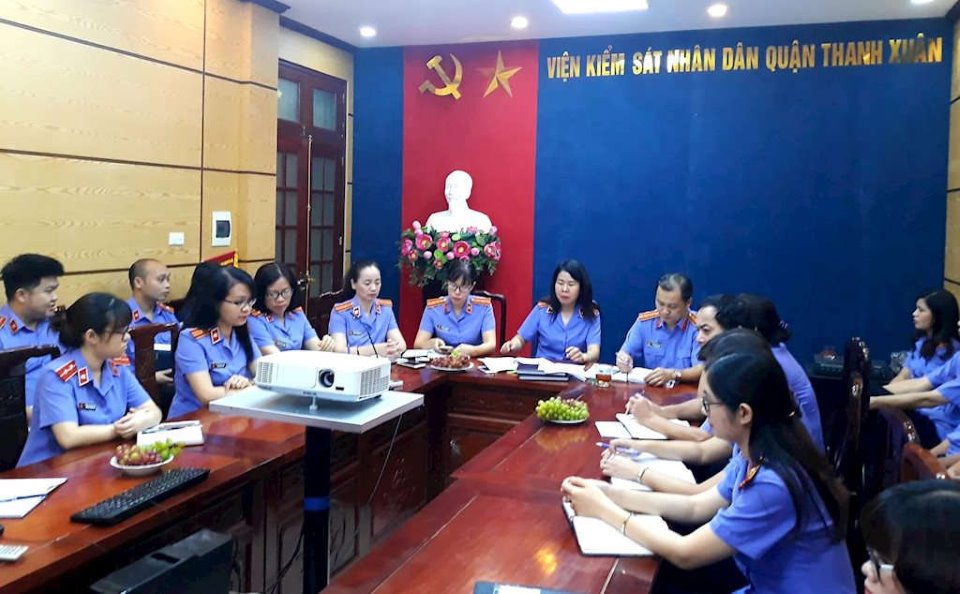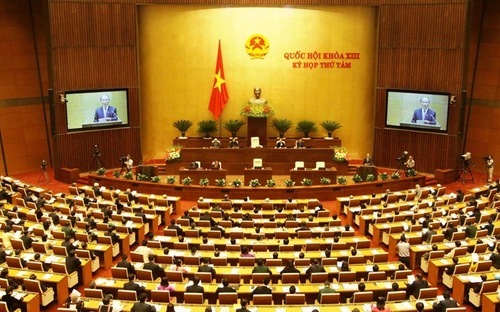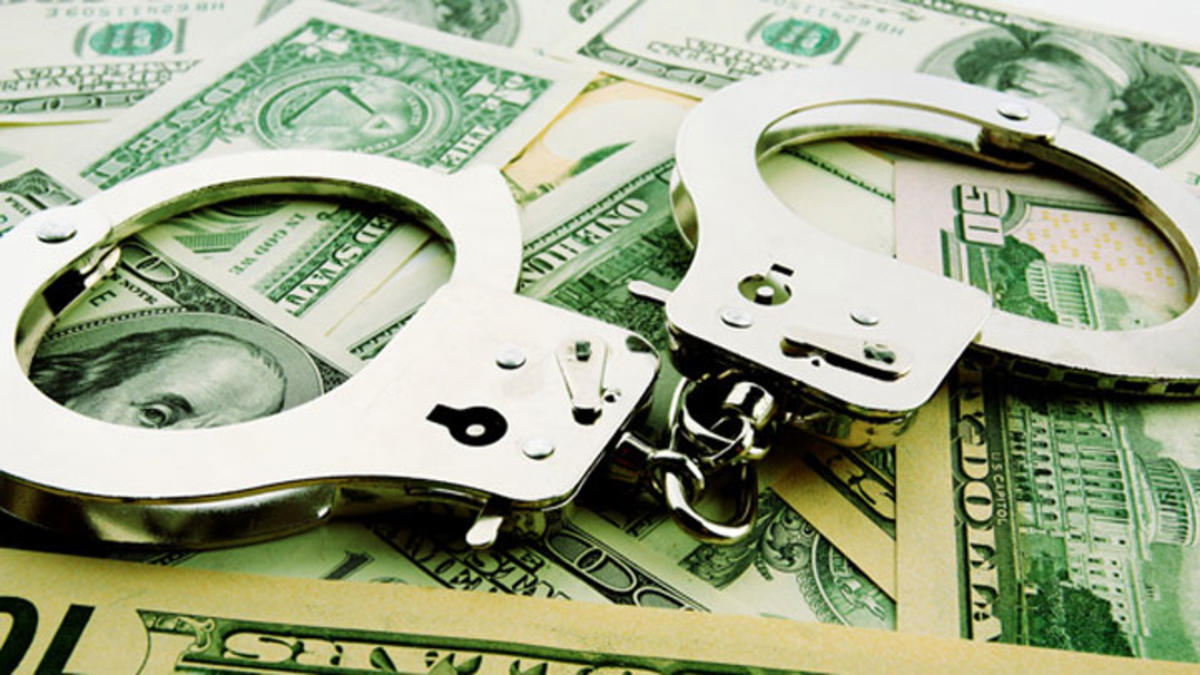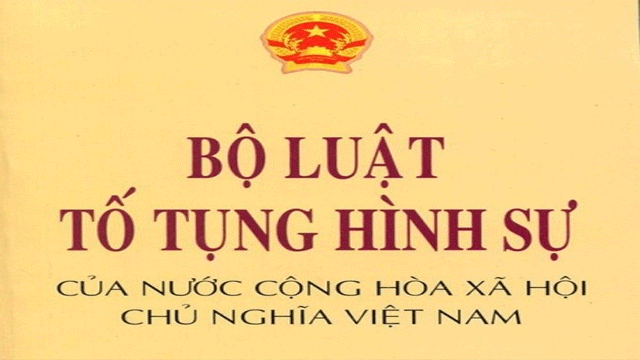Recently, the Supreme People's Procuracy of Vietnam issued Instruction 13/HD-VKSTC guiding the Procuracy at all levels in exercising prosecutorial power, investigating and supervising the first-instance trial of drug cases in 2021.

Notable points on the matter regarding work related to drug crimes that prosecutors at all levels in Vietnam need to know (Internet image)
In terms of the exercise of prosecutorial powers, judicial oversight, and the activities of the justice system, prosecutors at all levels must adhere to the provisions of the Law on the Organization of People's Procuracies, the Code of Criminal Procedure, the Penal Code, the inter-ministerial circular of the central authorities, and the professional regulations of the sector at each stage of their work in handling criminal cases in general. In the field of work related to drug crimes, prosecutors at all levels need to pay attention to the following:
1. Regarding the reception and handling of reports and complaints about drug crimes and proposals to initiate prosecutions related to drugs in Vietnam
- Prosecutors at all levels establish close relationships with investigating agencies, agencies tasked with conducting certain investigative activities, and relevant agencies at the same level to ensure a firm grasp of and complete information about drug crimes. They should pay attention to monitoring and capturing information about drug crimes through public media and online platforms.
- Ensure that all reports and complaints about drug crimes and proposals to initiate prosecutions within their jurisdiction are promptly and properly handled within the prescribed time limits.
- Conduct direct supervision or inspections of lower-level agencies to ensure that they meet or exceed the general targets set by the National Assembly and the assigned sector.
- Strictly comply with the initial reporting regime as prescribed. When issuing conclusions, recommendations, or appeals, prosecutors at all levels must directly inform their higher-level prosecutors for monitoring purposes.
2. The initiation of criminal cases and the prosecution of suspects in Vietnam
- Exercising close oversight over the initiation of criminal cases and the prosecution of suspects by investigating agencies from the moment of initiation. Paying attention to the characteristics and features of drug crime groups to effectively handle the following: compliance with legal procedures when collecting documents and evidence, and conducting investigative activities and verifications by investigating agencies.
- Ensuring the legality and basis of the documents and evidence used to prove the crimes. In drug cases, expert examination is mandatory and of utmost importance in case resolution. Prosecutors must closely supervise the contents of decisions requesting expert examination, ensuring compliance with legal regulations and guidance from the central judiciary.
- If the expert examination conclusion is unclear or contradictory to other documents or evidence, or if violations of the law are discovered in the expert examination process, it should be requested to the expert examination agency for clarification or a supplementary examination. Prosecutors should not interpret, cut, or select contents based on subjective opinions to serve case resolution.
- If the documents and evidence provided by the investigating agencies are insufficient to approve the initiation of prosecution, it should be requested that the investigating agencies supplement and allow prosecutors to access additional documents collected during surveillance activities for supplementation when making approval decisions.
- In cases where the accused does not admit the offense and claims innocence, prosecutors must directly participate in taking statements to clarify the contents of the case files and serving the evaluation of collected documents and evidence. If conditions permit, they should actively facilitate the participation of lawyers and defenders in the process of taking statements and questioning the accused.
- Prosecutors at all levels must comply with the provisions of Clause 6, Article 183 of the Code of Criminal Procedure, which require audio or audio-visual recording to be carried out when investigators question the accused at detention facilities or at the headquarters of investigating agencies or agencies tasked with conducting certain investigative activities. Failure to comply with this requirement constitutes a serious violation of procedural regulations. Therefore, it is necessary to request that investigating agencies record 100% of cases and, if conditions permit, carry out audio-visual recording.
- Carefully supervising the jurisdiction of the investigation according to Article 163 of the Code of Criminal Procedure. If a case being investigated does not fall within the jurisdiction as prescribed by law, it should be requested that the investigating agency at the same level carry out the necessary procedures to propose a decision from the prosecution to transfer the case to the competent investigating agency. In cases where the prosecution has made a request but the investigating agency fails to comply, the prosecution should proactively make a decision to transfer the case in accordance with the provisions of point d, paragraph 1, Article 169 of the Criminal Procedure Code.
3. Regarding arrest, temporary detention, and pretrial detention in Vietnam
- Prosecution agencies at all levels closely supervise the grounds, conditions, and time limits when applying measures to prevent arrest, temporary detention, and pretrial detention by investigative agencies and address the issue of abuse of arrest and detention, especially in emergency cases.
- In drug-related crimes, when law enforcement agencies apprehend individuals caught in the act of committing a crime, in addition to the main suspect, there may be other individuals present at the crime scene who are suspected to be related to the case. In such cases, temporary detention may be necessary to clarify their involvement in the case.
- Prosecution agencies must request investigative agencies to promptly verify the relationship between these individuals and the main suspect, including their personal background, subjective intent, and any actions related to drug crimes, in order to classify and handle them in a timely manner, ensuring that criminals are not left unpunished and minimizing the proportion of arrests and pretrial detentions, while also ensuring that they cannot be prosecuted and processed according to criminal law.
4. The investigation and prosecution of drug-related criminal cases in Vietnam
- Prosecution agencies at all levels assign prosecutors to study the case files and issue investigation requests for each case, with at least one investigation request being mandatory.
- When exercising their prosecutorial powers and participating in investigations, prosecutors need to focus not only on clarifying the criminal acts of the suspects but also on verifying and clarifying the sources of assets used in the commission of the crime, as well as whether the suspects obtained these assets from the results of their criminal activities. This is to apply additional penalties such as fines, confiscation of a part or all of the assets as stipulated in the Criminal Code for drug-related crimes, and to request the attachment or temporary seizure of assets to ensure enforcement of future court orders. Strictly comply with the regulations on the construction and arrangement of prosecution files, stamping with the official seal, and copying documents according to the prescribed procedures.
- Prosecutors should participate in interrogating the suspects together with investigators or directly conduct interrogations at least once per suspect, paying special attention to cases where the suspects file complaints, make false accusations, or report violations of the law by investigators, or cases where the suspects sometimes admit guilt and sometimes deny it.
- Strictly adhere to the presumption of innocence principle and closely follow the legal provisions on ensuring the rights of the suspects in criminal proceedings, such as the right to be informed of their rights and obligations, the right to hire or be appointed a defense lawyer, the right to remain silent, etc.
- Before the investigation of the case is completed, investigators and prosecutors should jointly evaluate the documents and evidence collected in the case, promptly identify any violations or deficiencies, and rectify them to avoid transferring the case to a higher-level prosecution agency where violations or deficiencies are discovered and the case needs further investigation.
- For cases within the jurisdiction of lower-level prosecution agencies, the extension of the investigation period and the duration of pretrial detention for the suspects must be requested from higher-level prosecution agencies. The request for extension must be accompanied by a written proposal and the case file submitted to the higher-level prosecution agency at least 10 days before the expiration date.
- When requesting prosecution after the investigation is completed, prosecutors continue to study the entire case file, extract or digitize the necessary documents, compile a comprehensive report, evaluate and analyze the incriminating and exonerating evidence, conduct confrontations, especially in cases where the suspects do not admit guilt or where there are contradictions in their statements that have not been clarified, and involve a defense lawyer (if available) in the interrogation process. Compile a report proposing prosecution and a draft indictment, ensuring that the prosecution is directed at the right person, for the right crime, and follows the prescribed procedural requirements of the law.
5. The stage of the preliminary trial in criminal drug cases in Vietnam
- Prosecution offices at all levels must fully comply with regulations on procedural process and professional skills in the exercise of prosecutorial and supervisory powers in the preliminary trial of criminal cases, actively engage in questioning and debating with lawyers and defendants, and participate in proceedings to protect the prosecution standpoint in the indictment.
- For cases under the jurisdiction of higher-level prosecution offices in the exercise of prosecutorial and supervisory powers in the investigation, before the end of the investigation period of 2 months, the lower-level prosecution office must notify the competent prosecution office in writing to request the appointment of a Prosecutor to participate in the study of the case file. The lower-level prosecution office must timely appoint a Prosecutor to participate in the study of the case file and prepare the outline for questioning and indictment when assigned to prosecute and conduct the preliminary trial.
- During the trial process, the Trial Council may summon investigators to the court session to clarify related issues. Prosecutors must actively cooperate with investigators to prepare the necessary information for the court.
- Through the exercise of prosecutorial and supervisory powers in the resolution of drug cases, prosecution offices at all levels must timely detect violations and shortcomings in investigation, trial, defense, interpretation, forensic examination, verification, seizure, and handling of assets obtained through criminal activities in order to issue recommendations for improvement. At the same time, attention must be paid to detecting loopholes, shortcomings, and deficiencies in the state management work in order to issue timely recommendations for handling and preventing violations. When issuing conclusions, recommendations, or appeals, prosecution offices at all levels must directly inform the higher-level prosecution office for monitoring.
6. The work of handling complaints and denunciations falls within the jurisdiction of the prosecution office, and the supervision of the resolution of complaint and denunciation letters in judicial activities
- Classify and handle the letters in the correct order, jurisdiction, and prescribed time limit. Pay attention to letters and complaints related to the determination of drug mass, content, the use of other professional measures, etc., by thoroughly studying relevant legal documents; if necessary, seek opinions from specialized agencies before responding.
- For letters and complaints related to the litigation activities of investigators, investigative officers, prosecutors, inspectors, judges, and secretaries, if there are signs of crimes that infringe upon judicial activities, they must be transferred to the investigative agency of the Supreme People's Procuracy for consideration and resolution according to their jurisdiction.
- With the information mentioned in the reports of higher-level prosecution offices, it is necessary to conduct a specific document examination and submit a report on the results of the resolution to the higher-level prosecution office in accordance with regulations.
7. Coordination work
- Prosecution offices at all levels establish close and transparent relationships between different levels of supervision. Build cooperative relationships with investigative agencies, agencies entrusted with conducting certain investigative activities, courts, and relevant departments and units.
- Based on the practical handling of drug-related cases, it has been shown that the = Criminal Law 2015 (amended in 2017) reveals some points that are not in line with reality or have different interpretations. Prosecution offices at all levels need to closely coordinate with peer-level litigation agencies, regularly exchange information to reach consensus and narrow the differences in legal understanding to serve the resolution of cases and incidents effectively.
- Key word:
- drug crimes
- in Vietnam
 Article table of contents
Article table of contents










.Medium.png)
.Medium.png)
.Medium.png)
.Medium.png)
